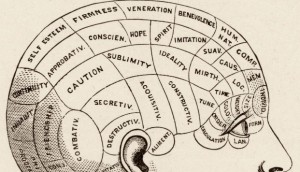I don’t usually blog about my own cases because it requires that I put in a disclaimer.¹ However, a trio of district court decisions, including two in cases where I represent the defendant, justify another look at standing after Transunion and the Laufer cases.²
I’ll start with the good news of an apparent trend in ADA website cases filed in the Southern District of New York. The most recent case is Martin v. Second Story Promotions, Inc., No. 1:22-CV-10438 (MKV), 2024 WL 775140 (S.D.N.Y. Feb. 26, 2024), a decision by Judge Vyskocil. The case was a typical³ serial filer suit alleging that a website was not accessible and therefore violated Title III of the ADA. Judge Vyskocil dismissed the case because the necessary allegations were not sufficiently specific. As she observed:
She did not say what I think is obvious; that is, these allegations were not included because the plaintiffs could not have included them and told the truth. It was a victory for common sense and the Case and Controversy clause in Article III of the Constitution.
Judge Vyskocil is not alone in her views of this kind of pleading. In fact, the most recent decisions from the Southern District of New York seem to show a clear trend toward finding that serial filers do not have standing after the 2nd Circuit’s decision in Calcano v. Swarovski North American Limited (4). See, Feliz v. IHealth Labs Inc., No. 23-CV-00354 (JLR), 2024 WL 342701, at *5 (S.D.N.Y. Jan. 30, 2024), Loadholt v. Oriental-Decor.com Inc., No. 22CV8205ASRWL, 2024 WL 78243, at *1 (S.D.N.Y. Jan. 4, 2024), report and recommendation adopted, No. 22-CV-8205 (AS), 2024 WL 247107 (S.D.N.Y. Jan. 23, 2024), and Zinnamon v. Profound Color, LLC, No. 1:23-CV-2722-LJL, 2023 WL 6882415, at *3 (S.D.N.Y. Oct. 17, 2023) and Dawkins v. Schott NYC Corp., No. 22CV3617PKCTAM, 2023 WL 6283285, at *5 (E.D.N.Y. Sept. 26, 2023).
This does not mean, however, that the battle is won. Judge Liman, who has dismissed ADA website cases based on lack of standing, found that standing was sufficiently pled in Davis v. Wild Friends Foods, Inc., No. 22-CV-04244 (LJL), 2023 WL 4364465, (S,D.N.Y. July 5, 2023). More important, the pleading defects in all the cases cited above can be fixed by simply making the plaintiff work a little harder to provide more specific allegations. Those allegations may not be true, but these cases settle because it is cheaper than winning at trial. If a pleading can withstand a motion to dismiss, settlement will remain the cheapest option and serial filers will continue to file suit.
Turning from the ADA to the Fair Housing Act and my own cases, it is worthwhile to compare two decisions in cases brought by the same serial FHA filer, Dana Bowman. In an unreported opinion dated February 13, 2024 Judge Reed O’Conner denied the defendants’ Motion to Dismiss based on standing, relying on the Supreme Court’s decision in Havens Realty v Coleman and earlier decisions in favor of Bowman from other district courts. See, Bowman v. Shannon Creek et al, Case No. 4:23-cv-00325-O (N.D. Tex. Feb. 14, 2024). The opinion is brief and contains no analysis of TransUnion or any of the Laufer cases, so there isn’t much to learn from it except that a defendant can lose a motion to dismiss in the Northern District of Texas.
Judge Brantley Starr’s decision in Bowman v. SWBC Real Estates Services, LLC, No. 3:23-CV-00970-X, 2024 WL 1123035, at *5 (N.D. Tex. Mar. 14, 2024), on the other hand, contains a reasonably detailed and very interesting analysis of FHA and ADA standing in cases involving multi-family housing. The analysis begins with a show of independance, for Judge Starr writes that: “The parties point to other non-binding cases, but the Court opts to stick with the cases that bind it.” Those are, of course cases from the Fifth Circuit and Supreme Court; not the district court cases holding in Bowman’s favor.
Judge Starr begins his analysis by observing that in public accommodation cases under Title III of the ADA plaintiffs have standing with respect to barriers to access in public areas because they are an invitee. They do not have standing for non-public areas that they cannot lawfully enter. After finding that Bowman failed to state a claim under Section 3604(f)(1) of the FHA because he did not allege any interest in buying or renting an apartment, Judge Starr turns to Section 3604(f)(2), which more broadly covers the privileges associated with renting an apartment, Judge Starr begins with his ADA analogy to distinguish accessibility barriers in places to which Bowman had “lawful access” and those he did not.
If these [thermostats and bathrooms] were in common use areas of a dwelling Bowman had a lawful right to enter, they seem fair game for him to sue. If Bowman is complaining about thermostats and bathrooms in rented units he has no right to access, then it does not seem that he encountered those barriers or was harmed by them—predicates to standing in any case.
Bowman v. SWBC Real Estates Services, LLC, 2024 WL 1123035, at *4. Bowman was granted leave to replead so it remains to be seen whether he will be able to satisfy Judge Starr with respect to these allegations.
Judge Starr’s opinion finds that Bowman did plead standing with respect to mail boxes and the lack of a route to the public street because these were both things he might encounter in the common areas of the apartments. It is not clear, however, that these allegations can support standing past the pleading stage.(5) While a visitor like Bowman might see an inaccessible mailbox, unless they were expecting mail the inaccessibility would have not real life consequences for them. The same is true of an accessible route from the street for a person who, like Bowman, probably drove to the property. It might also be true of the bathroom or kitchen in an unoccupied unit shown during a tour of the apartments. One thing Laufer made clear was that merely being aware of a statutory violation is not sufficient to create an injury that gives rise to standing. Unless Bowman needed use a bathroom in a display unit it seems unlikely that a lack of accessibility would create more than the dignitary injury the Fifth Circuit has rejected. Bowman has until April 11, 2024 to replead, so stay tuned.
Taken together, these cases demonstrate that “know your judge” is still critical in defending ADA and FHA serial filer cases. Not only might you get a clear thumbs up or thumbs down, you might also find you have a judge who has adopted a more complex analysis of their own.
+++++++++++++++++++++++++++++++++++++++++++++++
¹ The disclaimer is that I can’t say the result will be the same in other cases, and if you read on you will understand why.
² To avoid a very long string of references I’ll refer you first to Acheson Hotels – I had to say something. in which I review the correct (in my view) legal arguments about this issue and ADA Serial Litigation – Will the Supreme Court cut the head off this snake for footnotes with references to even more blogs on this subject.
³ Typical is something of an understatement. Cases of this kind are essentially identical except for the name of the defendant and the pet plaintiff on whose behalf the lawsuit was filed.
(4) See my blog at A short sharp shock.
(5) Although Judge Starr did not treat other district court cases as binding, He did look closely at the decision in Bowman v. Wildwood of Lubbock, LLC, No. 5:19-CV-164-H, 2020 WL 10458628, at *5 (N.D. Tex., Oct. 23, 2020). In that case the finding that Bowman adequately pled standing rested in part on Bowman’s use of a wheelchair and allegations that as a wheelchair user he could not even enter some parts of the apartments he visited. Bowman is now able to walk on artificial limbs and apparently does not use a wheelchair when he visits the apartments he sues. That means that while a mailbox or a thermostat might not be accessible to a person in a wheelchair they could still be accessible to him.




